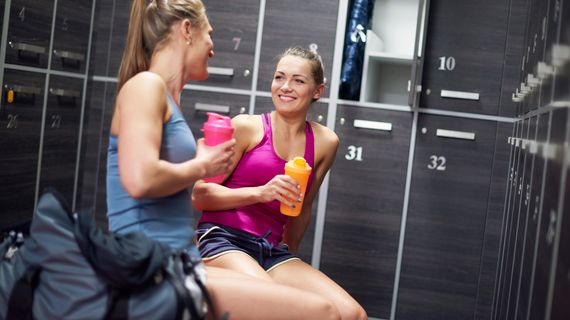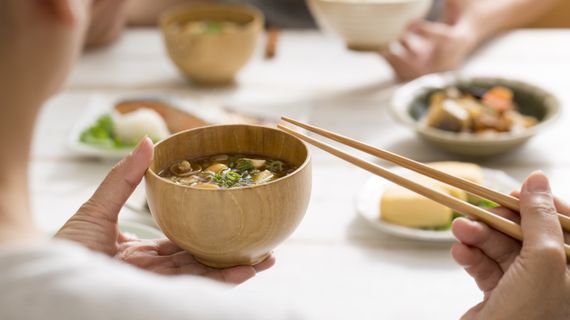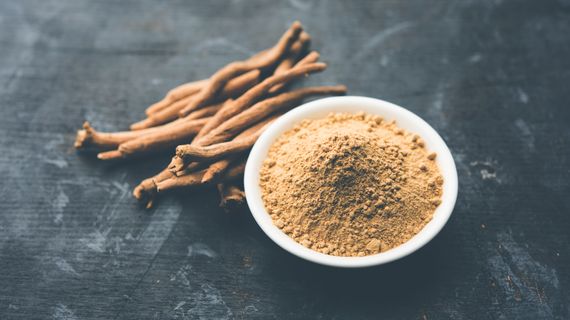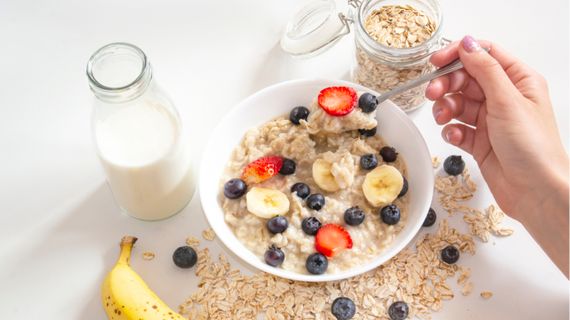There is a plethora of different types of protein bars available on supermarket shelves and in online stores today. It's not surprising that many consumers feel a bit overwhelmed by their choices.
Here are a few simple tips on what to look for when choosing a high‑quality protein bar.
1. Energy
While a protein bar is supposed to fill us up, it should definitely not account for half of our daily intake. We should be especially careful of the energy content when dieting, as some products (especially those covered in chocolate) can put a dent in our calorie deficit.
Most often, we see an energy content of around 190‑238 kcal (800‑1000 kJ), which corresponds to a snack like a baguette with cream cheese, two slices of ham and vegetables.
2. Protein
When choosing a protein bar, we should be mindful of the source of the protein. High‑quality sources include:
- Whey concentrate, isolate and hydrolysate
- Micellar casein
- Egg protein albumin
- For vegan protein bars, look for those that either combine multiple plant sources (rice, pea, fava, soy, chickpea, mung bean) or are a very high‑quality plant protein (fava, chickpea, mung bean)
We should be more cautious with proteins of lower biological value, such as:
- Calcium caseinate
- Collagen
- Soy protein isolate (unless the bar is vegan, as soy protein may give the impression that the manufacturer is trying to save on ingredients)
Double Trouble Protein Bar

3. Carbohydrates
Attention should also be paid to carbohydrates, specifically simple sugars, polysaccharides and polyols, rather than their total content.
You can tell a good quality bar by the low amount of sugars, with the majority of the total carbohydrate content being mainly polysaccharides and polyols.
Depending on the size of the bar, the most common carbohydrate content is about 10‑20g/piece, while the amount of simple sugars should be within about 5g/piece. However, there is no fixed limit in this respect, so it is up to each of us to decide which bar we choose.
4. Fibre
The fibre content of protein bars is definitely desirable, as it helps us feel fuller for longer.
High‑quality protein bars can contain fibre in quantities of around 10g or more.
Prebiotic Protein Bar with 20g of Fibre

5. Fats
A typical protein bar contains an average of about 10g of fat, which usually comes from several different sources, such as palm, palm kernel or coconut fat. These fats are often viewed rather negatively from a nutritional and environmental perspective.
They are used mainly because of their advantageous properties in the production process and their resistance to oxidation (a process that takes place on the double bonds of unsaturated fatty acids and results in undesirable aldehydes and ketones).
In contrast, fats that are perceived positively on the fatty acid spectrum, such as rapeseed, olive or flaxseed, are nutritionally better but are not often found in protein bars due to their more frequent oxidation process and distinctive flavour profile.
Therefore, cocoa butter, milk fat or nut butter and nuts are more likely to be found in better‑quality bars. However, even fats from tropical palm fruits do not need to be a major health concern due to the low amount in a single bar.
Bottom line
Protein bars are a great partner for many situations. They can serve us as a quick snack, a meal and a sweet replacement to replenish protein during the day and after training or as a garnish for various desserts and porridges. Finding the right one, however, is not easy, and the uninformed consumer can easily get lost in the plethora of different varieties and brands.
When choosing a good quality bar, we should focus primarily on the amount and source of protein, the quality of carbohydrates and fats, and the fibre content.


















